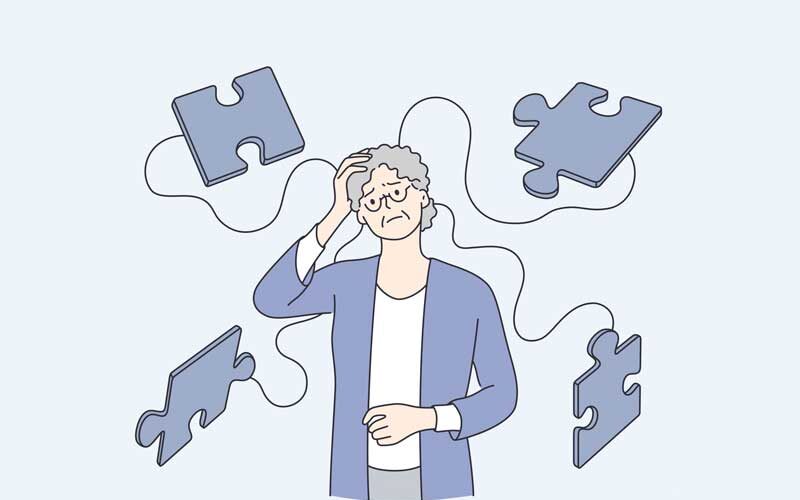Some individuals reminisce about their past experiences, akin to watching vivid videos, flipping through snapshots, perusing documents, or immersing themselves in music. These recollections are often considered reflections of lived experiences, fostering confidence in the accuracy and reliability of one’s memory. However, it is imperative to recognize the fallibility inherent in human memory. Memories can be constructed or distorted by the intricacies of the brain’s processes or influenced by external factors. Despite our inclination to trust our recollections, it’s essential to acknowledge the potential for memory to be unreliable. Understanding the nuanced nature of memory empowers us to approach our recollections with a critical eye, appreciating their significance while also recognizing their potential limitations and vulnerabilities.
What is a false memory?
In the field of psychology, a false memory refers to a mental encounter that is recalled as being accurate but is either wholly untrue or markedly distinct from the actual event. An example of this false memory can range from fairly small, like recalling the wrong color of clothes one wore, to more significant, like remembering a reoccurring event. False memory often causes undesirable consequences, spanning from wrongful convictions in legal trials to accidental harm (Perera, 2021). False memories can be inadvertently created through suggestion, leading questions, or even by the individual’s own imagination filling in gaps. Understanding the mechanisms behind false memories is crucial, as it sheds light on the complexities of human cognition and highlights the need for caution when relying solely on memory in various contexts.
What causes false memory?
Although the causes of false memory are not fully understood, researchers suggest that several factors contribute to its creation. False memories can emerge when others question individuals using specific word choices or provide incorrect information about an event, leading individuals to believe in the reliability of the false memory. Moreover, the provided inaccurate information can become stored in our brains, and over time, gaps in memory may be filled in with fabricated memories. Sometimes, elements from different events can merge into a single memory, confusing the timeline of events. Recent research has also shown that negative emotions are more likely to result in false memories compared to positive or neutral emotions (Holland, 2019). Understanding these factors helps elucidate the intricate workings of memory and underscores the need for caution when relying on memory alone in various contexts.
Experiments on false memory
Experiments investigating false memory have yielded fascinating insights into the malleability of human recollection. One notable experiment, conducted in 1974 by psychologist Elizabeth Loftus, renowned for her groundbreaking work on the misinformation effect and false memory, sheds light on this phenomenon. In the experiment, participants watched three videos depicting car accidents filmed at different speeds: 20mph, 30mph, and 40mph. Subsequently, they were asked to complete a survey containing questions and explanations about the collisions. Crucially, the surveys varied only in the verb used to describe the collisions, which subtly influenced the perceived severity of the accidents. Surprisingly, the participants’ estimations of the cars’ speeds were more influenced by the verb used in the survey explanations than by the actual speeds observed in the videos. Furthermore, participants tended to incorporate false details into their recollections when the survey’s wording aimed to depict the accidents as more severe. This study underscores how subtle linguistic cues can distort our perceptions and contribute to the formation of false memories, highlighting the complexities inherent in human memory processes (Waude, 2016).
The potential impact of false memory
The ramifications of false memory extend beyond individual experiences to impact broader society, particularly in criminal justice contexts. Eyewitness testimony holds considerable weight in criminal trials and is often regarded as a cornerstone of evidence. However, the reliability of such testimony is increasingly questioned due to the susceptibility of human memory to distortion. Inaccurate recollections or misidentification by witnesses can lead to unjust outcomes, including wrongful convictions. Police questioning techniques, laden with suggestive prompts or biased inquiries, further exacerbate the risk of false memory formation. Consequently, innocent individuals may be wrongly accused and convicted based on flawed testimony, perpetuating miscarriages of justice. Recognizing the potential for false memory to influence legal proceedings is paramount for safeguarding against wrongful convictions and upholding the integrity of the criminal justice system (Gutierrez, 2022).
Conclusion
In summary, false memory is a psychological phenomenon where one recalls events that are either entirely untrue or significantly different from reality. It can stem from various sources, such as suggestions or leading questions, exposure to incorrect information, the blending of multiple memories, and the influence of emotions. Elizabeth Loftus’s groundbreaking experiments shed light on the susceptibility of memory to distortion, revealing how even subtle changes in wording can manipulate perceptions and contribute to false memories.
False memories carry the potential for unintended harm, particularly in legal settings where eyewitness testimony can sway the outcome of trials. Witnesses may be influenced by biases or sincerely believe in the accuracy of their memories, leading to wrongful convictions based on faulty testimony. Despite ongoing research efforts, the causes and solutions to false memory remain incompletely understood.
As research progresses, it is hoped that a more comprehensive understanding of false memory will emerge, facilitating the development of strategies to mitigate its impact and ensure the integrity of memory in various contexts.
Reference
Gutierrez, O. (2022). HOW DO FALSE MEMORIES AFFECT CRIMINAL CASES? [online] The Lebedevitch Law Firm, LLC. Available at: https://www.leb-law.com/how-do-false-memories-affect-criminal-cases/ [Accessed 13 September 2023]
Holland, K. (2019). False Memory: What You Need to Know. [online] Healthline. Available at: https://www.healthline.com/health/false-memory#whos-at-risk [Accessed 13 September 2023].
Perera, A. (2021). False Memory In Psychology: Examples & More. [online] SimplyPsychology. Available at: https://www.simplypsychology.org/false-memory.html [Accessed 13 September 2023].
Waude, A. (2016). How False Memories Can Affect Our Ability To Recall Events. [online] PSYCHOLOGIST WORLD. Available at:
https://www.psychologistworld.com/memory/false-memories-questioning-eyewitness-testimony [Accessed 13 September 2023].
